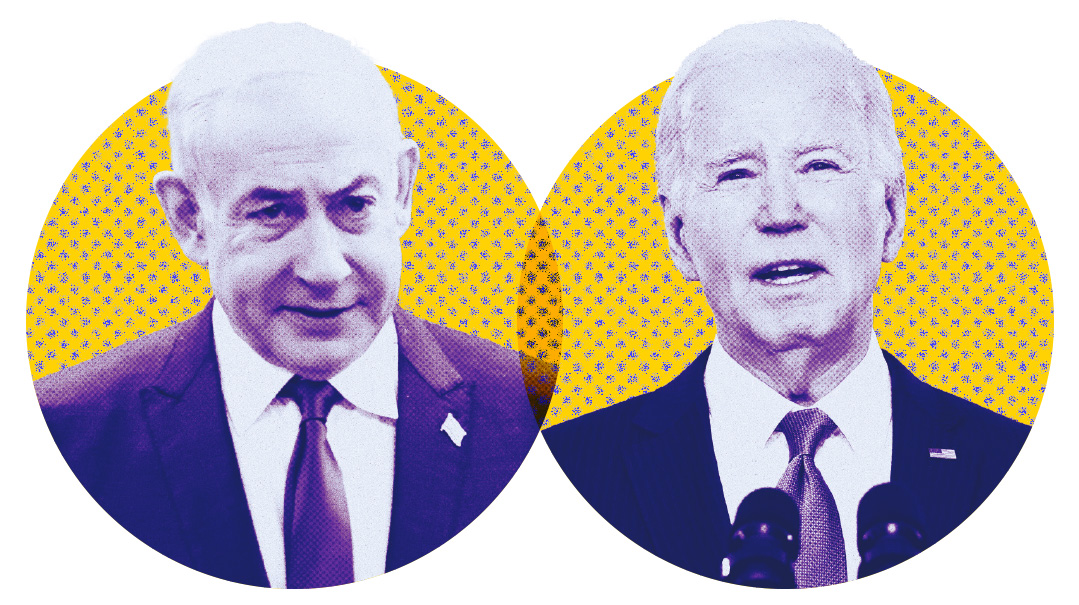Gaming Israel’s 4th Election

Bibi heads the polling pack, but Bennett is kingmaker

1. The Likud Grabs a Big Lead
Binyamin Netanyahu simplified his strategy this time around. Tout his foreign policy accomplishments. Vaccinate the country. Open the economy. Then enter Election Day proclaiming Israel as the first country to conquer COVID-19.
So far it’s working, yet it’s not a riskless strategy. The better Bibi looks in the polls, the more likely the Biden administration is to break its silence and put pressure on him, perhaps expediting negotiations with Iran as a lever. A new coronavirus mutation could trigger a fourth lockdown. And even if Israelis are healthy enough to bentsh gomel before Election Day, Bibi will face furious voters who’ve lost livelihoods to the pandemic, and a grumpy citizenry who presume Netanyahu is guilty until proven innocent of corruption.
No polls show the Likud retaining all 36 seats it currently holds, but it’s still the political brand with the strongest slate. If they can hang on to 33 or 34, they will hold the upper hand in forming a coalition.
2. “Anyone but Bibi” Is a Dud
In politics, it’s not enough to say who you’re against. You have to tell voters what you’re for. Benny Gantz won between 33 and 35 seats in the last three elections leading the anti-Bibi camp before caving to it and playing second fiddle in a Netanyahu-led government. Gantz proved he is not a political big-leaguer, and party members deserted him in droves.
This time, he fielded a slate of just seven candidates. His Blue and White party is not expected to pass the 3.25% threshold required to enter the Knesset.
This leaves Yair Lapid and Gideon Saar to vie for the vacated title of “who’s the biggest anti-Bibi of them all.” Lapid’s Yesh Atid party is running a distant second to the Likud. Anti-chareidi backlash is boosting Lapid’s chances among voters who blame the lockdowns on the high chareidi COVID-19 rates, even if Lapid himself is not overtly fanning the flames. Lapid is unlikely to surpass the 19 seats he won in 2013 — the first time he ran — as many Israelis view him as vain and superficial.
3. Gideon Saar Peaked Too Soon
The first poll taken after Gideon Saar’s bombshell that he was splitting from the Likud to start his New Hope party showed him winning more than 20 seats. He’s now hovering around 14. It’s always a bad sign when the momentum goes south and stays there. Saar keeps pace with Bibi when voters are asked who’s best suited to be prime minister, but that’s all theoretical, since there’s no direct election for that post.
Saar’s party slate is unimposing. Aside from Zev Elkin, Saar failed to recruit any big-name defectors from the Likud. Number two on his list is Likud rebel Yifat Shasha-Biton, who supports an option for civil marriage. Sharren Haskel, at number five, is a member of the Knesset’s LGBTQ lobby. Benny Begin, at number six, is a political retread whose tilt to the left shows how far the apple has fallen from the tree. Right before the deadline, Saar plucked Jerusalem councilman Ofer Berkovitch — who ran for mayor in 2018 on the platform of ridding Jerusalem of “chareidi extortion.”
Add a few anti-Bibi castaways from Blue and White, and Saar looks like he has sacrificed his longstanding Likud values on the altar of political expediency.
4. The Chareidim: Bibi’s Best Bet
The pre-election jockeying for position between Agudas Yisrael and Degel HaTorah — the two partners in United Torah Judaism — had all the feel of people elbowing each other at the kiddush table to get closer to the piping hot Yerushalmi kugel, but at the last minute, the two factions made shalom and raised a l’chayim.
For the first time, the “Lithuanian” Degel HaTorah faction, headed by Moshe Gafni, will lead UTJ. Yaakov Litzman’s Agudas Yisrael, or chassidic faction, drops to the second slot. There has been some talk that one or two chassidic factions who felt sidelined by the final placement will stay home, but that would be counterproductive. Placement was ultimately determined by which faction has proven its ability to get out the vote. Sitting home won’t improve those numbers.
On the Sephardi side of the chareidi equation, Shas is a bastion of stability with Aryeh Deri at the helm. Some polls show Shas slipping from nine to seven or eight seats, but the polls always undercount the chareidi vote, perhaps because some are conducted online or by SMS. If Shas and UTJ can hold their current 16 seats, or, better yet, increase that to chai, the chareidim could conceivably become the Knesset’s second largest faction, especially if Lapid slips.
5. The Left in Disarray
The Israeli left is barely treading water. Labor’s Merav Michaeli is the sixth person to lead Labor in the past seven elections. Interestingly enough, she hasn’t ruled out joining a right-wing coalition, but at best, Labor will win five to seven seats. This could be the election that sinks the far-left Meretz once and for all.
Perhaps the most remarkable development is how Netanyahu fractured the Arab bloc, known as the Joint List. In previous elections, Bibi would cry gevald over high Arab turnout or suggest placing video cameras at Arab precincts to monitor for voter fraud. This time, Bibi cultivated Arab strongholds from Nazareth to the Negev, leveraging the Abraham Accords to persuade the Arabs they will gain more from dealing with Israel than delegitimizing it. Bibi pried the Ra’am faction away from the Joint List, promising to appoint an Arab minister and offering a larger budget share.
Jack Khoury, who covers Arab affairs for Ha’aretz, speculates Bibi’s courtship of the Arab vote could add two seats to Likud’s total. That remains to be seen, but even if Ra’am doesn’t pass the threshold, polls show the Joint List falling from 15 to 10 seats. Either way, it’s win-win for Bibi.
6. Bennett Ascends; the Religious Right Unites
How many times can Naftali Bennett reinvent himself? As many times as he has to in his quest for the right mix of voters from the center-right, national-religious, and those zealous for judicial reform. While Gideon Saar cut deeply into Bennett’s base, polls show Bennett’s Yamina party rising from 6 to 11 seats. Bennett hasn’t ruled out joining a Netanyahu-led coalition like Saar has.
While Netanyahu needs Bennett in double digits to join the Likud and the chareidim, Bibi’s best political coup this time was strongarming three far-right religious parties, led by Bezalel Smotrich, to run together. In most elections, voters loyal to the religious far right toss over 100,000 votes into the trash can on parties that fail to pass the threshold. Bibi is counting on this new grouping to provide him with a minimum of four seats.
If so, it could be just enough to catapult a Likud-chareidi-Bennett-religious-right coalition over the magic 61 number. If not, and if the anti-Bibi’s can’t get there either, better keep some powder dry for a fifth election.
(Originally featured in Mishpacha, Issue 848)
Oops! We could not locate your form.













